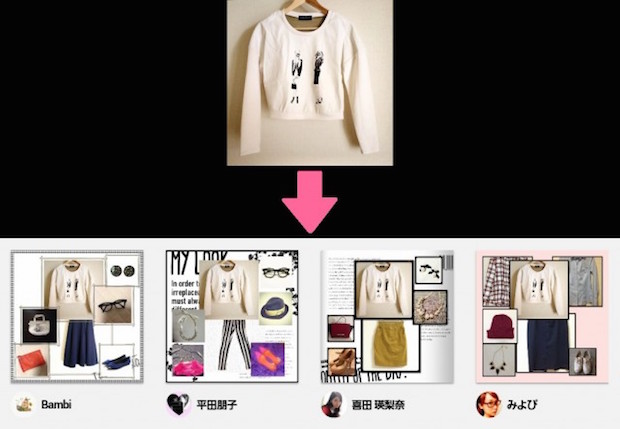By Kayo Yamada
The Japan News, Tokyo / Asia News Network
WWR Article Summary (tl;dr) The sharing economy is taking hold in Japan where men and women are learning there is a rental market for just about everything….
Tokyo
Konomi Takahashi, a 28-year-old office worker in Nakano Ward, Tokyo, has a very compact wardrobe. A total of 10 items hang on her closet rack, including four work suits, skirts and coats. A transparent drawer placed in the closet contains a few blouses and sweaters. She owns a lot less than most women her age.
Takahashi detests shopping for clothes, which is why last autumn she started using a clothes rental company. For a monthly fee of 5,800 yen ($53), she can rent up to five pieces at a time, as many times as she wants. After wearing the rented clothes, she sends them back in the box they came in. Washing them is not required.
Although she buys her own work clothes, Takahashi’s casual wear is rented. When she wore a new rental one-piece for an opera outing, the workmate she went with was blown away. “You have a completely different air about you,” she was told. “I wouldn’t buy clothes that are in fashion as I’d probably get tired of them pretty quickly. Since I started having fun trying out rental clothes, I’ve had people compliment me on my fresh fashion sense,” Takahashi said, reveling in the unexpected glow of the “rental bonus.”
Most clothes renters are women in their mid-20s to late 30s, according to Omnis, Inc., a clothes rental service based in Minato Ward, Tokyo. Aside from minimalists like Takahashi who have few possessions, these services are also a godsend for those too busy with work or children to go shopping for clothes.
Four-legged friends
Even pets, long considered companions to love and grow old with over the years, have become another offering in the rental market.
Every weekend, 48-year-old housewife Rie Aoyagi from Tokyo’s Edogawa Ward visits Wanpaku Land, a pet shop and rental service in Adachi Ward. Her reason for going is Asu, a 2-year-old female golden retriever. Aoyagi has rented time with Asu nearly every week since she was a 4-month-old puppy, and the dog is thoroughly attached to her. When Asu sees Aoyagi, she wags her tail and leaps toward her excitedly.
Aoyagi lives in government housing for civil servants. She wants to own a dog, but the management bans pets, and there is also the possibility of her having to transfer to another location. For now, she’s happy to rent her canine friend, but hopes to “live with Asu-chan some time in the future.”
Wanpaku Land rents out 16 different dog breeds at 3,000 yen ($27) for two hours, 50,000 yen ($464) per month or through other arrangements. Customers can buy the dog if they are compatible with each other.
Wanpaku Land’s customers include young people secretly hiring a dog to break the ice on a first date, and elderly customers who cannot look after a pet but want to play with one.
I decided to try it out for myself and rented Buru, a 2-year-old male French bulldog. When I took him for a walk, he practically dragged me along the riverbank with his vigorous pace. Although he sometimes responded to my playful gestures, when it was time to return, he padded into the store without so much as a backward glance. It all seemed a little businesslike, to this first-time customer.
Someone to talk to
“This just hasn’t been my year.” Just past 8 p.m on a weekday in mid-March, a 27-year-old office worker from Yokohama began pouring her sorrows out to a man at a cafe near JR Ebisu Station. The man is Takanobu Nishimoto, a 48-year-old stylist who began Ossan Rental (Middle-aged dude rental), a service that lets customers rent men in their 30s to 60s for 1,000 yen ($9) an hour.
The woman had just broken up with her boyfriend after a fight. At work, she was pulled out of the department she wanted to join, and made to go on more rural business trips. “You’re better off forgetting about men like that,” Nishimoto advised. “Maybe you’ll meet somebody interesting when you go on your business trips.”
As he continued to counter her laments with straightforward honesty, her face began to brighten. “I got to talk about things I could never share with my father or my boss. And I managed to sit and listen to honest feedback that would’ve been infuriating coming from my friends,” she said, leaving with an expression of relief.
When I asked how he came up with the idea of utilizing middle-aged men, Nishimoto replied, “They tend to get brushed aside for being tired and preachy. But I think they’ve been tossed around enough to know what’s what, and their experience should be used to help society.”
According to Nishimoto, one customer approached him after being diagnosed with a terminal illness. The customer said he had “no relatives to rely on so I want somebody to talk to until it’s time to go.” Behind the demand for these rentals is a fascinating array of stories.
The other day, I went to work wearing a rented lace skirt that I would not have normally bought for myself, and the compliments I received on this change in style flattered me somewhat. On the other hand, I could not shake off the uneasy feeling that I wasn’t myself.
This seems to be the age of meeting any need by simply renting the solution. I will try to make it work for me.














































































































































































































































































































































































